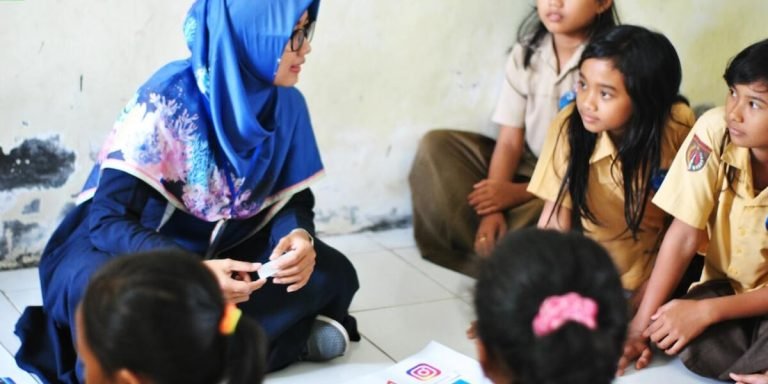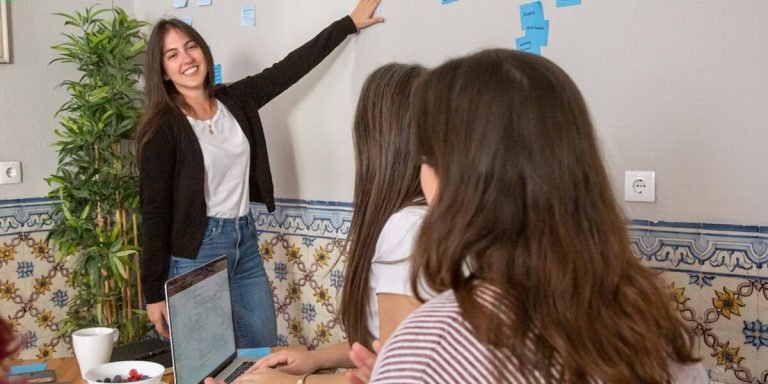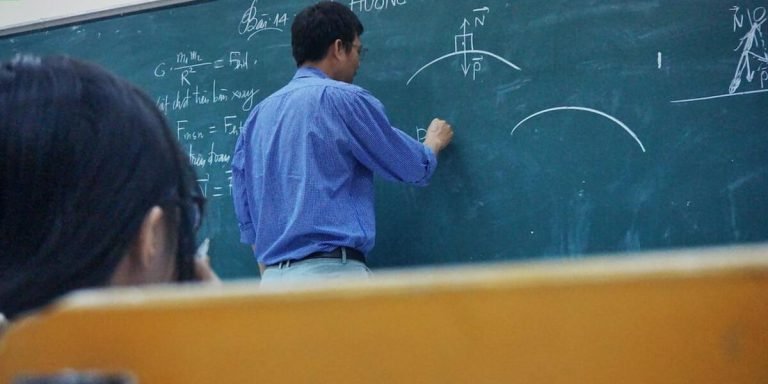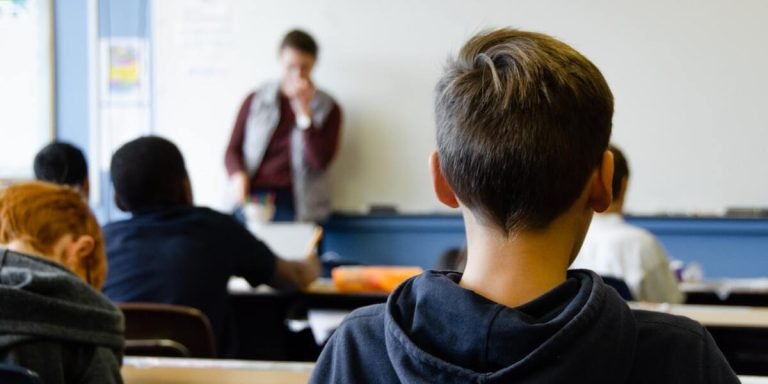Parent Partnership: A New Approach to Enhancing Early Childhood Education
In the fascinating realm of early childhood education, the concept of “parent partnership” is gaining momentum. This approach merges two significant forces in a child’s educational journey – teachers and parents – aiming to harness their combined strengths for better learning outcomes. Parent partnership goes beyond traditional parental involvement by recognizing parents as equal stakeholders in their children’s education.
Today we will explore how this collaborative strategy can enhance your child’s initial years’ growth and development. We’ll delve into why parent partnerships are crucial, its potential benefits, challenges encountered with implementation, along with practical ways for both educators and parents to establish effective collaborations. The aim is not simply about fostering academic success but also cultivating emotional resilience within our youngsters during these formative years.
Did you know?
Research shows that children whose parents are actively involved in their early education display enhanced cognitive development and improved literacy skills, according to a study by the National Association for the Education of Young Children.
Maximizing the Impact of Parent-Teacher Collaborations
The significance of collaborations between parents and teachers has reached unprecedented heights in the digital era. Technology integration in education, a focal point for most educational institutions this year, underscores an essential need for active parent-teacher partnerships. Leveraging interactive platforms that can help bridge communication gaps presents an unparalleled advantage to maximize student learning outcomes.
Parent involvement is not just about attending school functions or helping students with homework anymore—it’s about engagement at multiple levels made possible through technology. Innovative tools such as mobile apps, e-newsletters, video calls provide ample opportunities for creating stronger bonds between educators and families while maintaining transparency when it comes to discussing child’s academic progress.
For instance: EdTech solutions like online grade books give parents real-time access to their children’s performance data—an excellent tool assisting them identifying areas of improvement proactively rather than waiting until scheduled traditional meetings which were prone delays due technicalities or logistics issues now eradicated by technology-driven approach.
Strategies for Effective Communication Between Parents and Teachers
Communication between parents and teachers is a cornerstone of children’s education. With technology rapidly influencing teaching methods, there are numerous avenues for enhancing this crucial interaction. Here’s how we can foster an effective parent partnership in the current educational landscape.
1. **Utilize Technology Tools**: Today’s digital age provides various platforms to streamline communication between home and school effectively. Apps such as ClassDojo or ParentSquare enable real-time exchanges about student progress, homework assignments, events etc., fostering regular engagement.
2. **Virtual Meetings**: Traditional face-to-face meetings may not always be feasible due to time constraints or distance issues; virtual conferencing solves these problems seamlessly allowing both parties to connect at their convenience while maintaining personal contact through video calls.
3. **Collaborative Digital Platforms:** Online spaces like Google Classroom present opportunities for parents and teachers alike where resources can be shared readily promoting more profound involvement in children’s learning process making it truly collaborative.
4.`**Personalized Email Updates:** Regular personalized email updates reflecting individual child’s academic achievements act as a motivational tool spurring students’ growth while simultaneously keeping families informed of what transpires within classroom walls directly from the educators facilitating transparency.
5.`**Online Workshops And Webinars For Parents :** Another aspect is organizing workshops/webinars on topics relevant today -“Navigating online schooling,” “Helping your child manage screen time,” among others tap into common concerns thereby providing guidance further strengthening bonds.
Cultivating a Shared Vision for Student Success
Developing a shared vision between parents and educators is an instrumental part of achieving student success. A joint approach can foster consistency, encourage academic progress, and help students overcome challenges.
The concept of parent partnership in education has seen significant evolution over the years. Initially limited to teacher-parent conferences or PTAs, these partnerships are now digitally enabled – bridging gaps through technology integration in 2023.
One way to cultivate a shared vision for student success is by promoting open communication channels that keep parents updated about their child’s school performance and vice versa. New-age tools like mobile apps implemented by schools allow real-time updates on attendance records, submission deadlines, homework assignments etc., simplifying seamless interaction.
Parents and teachers must converge towards setting common educational goals tailored for each learner’s unique strengths snd weaknesses with regular feedback loops embedded into this process using annual progress reports made available online.
Building Strong Parent Partnership Foundations in Education
Building strong parent partnership foundations in education is no longer an option; it’s a necessity. With the rapid advent and integration of technology in education, parents and educators can now seamlessly work hand-in-hand to offer a well-rounded educational experience for children.
In 2023, classrooms are not limited to four walls but have extended virtually at home where parental involvement plays a crucial role. Leveraging digital tools such as learning management systems or LMSs, educational apps, e-books among others makes this collaboration significantly more effective. A critical aspect here is that these advancements aren’t merely about replacing physical books with PDFs; instead they’re aimed towards creating interactive platforms fostering communication between all stakeholders involved – teachers, learners and most importantly parents.
Creating robust channels for feedback using these tech-tools enable parents to actively participate in their child’s academic journey – be it understanding what topics are being taught weekly or knowing how well their ward is performing academically. Similarly, teachers get real-time insights into individual student’s progress which aids them better tailor teaching strategies suited for different types of learners . This intertwined support system essentially builds stronger bonds ensuring holistic development of students initiating lifelong learning.
Role of Active Listening in Enhancing Parental Engagement
Active Listening is a distinct, essential element in creating strong parent partnership foundations within education. When educators actively listen to parents’ concerns and input, they are able to form stronger connections between school and home which directly impacts the learning outcomes of children.
Firstly, active listening helps educators understand what improvements need to be made in terms of technological tools used for teaching. By attentively hearing parental perspectives about their child’s online schooling experience or interaction with specific educational apps, teachers can identify gaps that may not have been apparent before.
Secondly, when parents feel heard by the educator community on matters related to tech-based instruction methods – aspects like screen time worries or data privacy issues- then there develops an increased trust factor. This invigorates the parent partnership resulting in cooperative problem solving where both parties work together towards optimum utilization of technology resources while addressing any challenges faced.
Another noteworthy aspect is boosting confidence among technologically less adept parents through empathetic communication techniques such as paraphrasing their concern or summarizing key points during discussions related specifically around EdTech topics .This kind gesture indicates respect for their viewpoint thus fostering deeper bonds that ultimately strengthen overall support mechanism between families and schools.
Navigating Challenges to Forge Productive Partnerships
In a rapidly evolving educational landscape, navigating the complexities of fostering strong parent partnerships is indeed challenging yet essential. The integration of technology in education presents both opportunities and obstacles that educators need to skillfully manage to foster productive collaborations with parents.
The first step towards overcoming these challenges lies in acknowledging them openly. One significant concern for many parents today revolves around screen time and digital safety worries related to children’s use of tech devices at school or home for learning purposes. It’s crucial that educators address such concerns by putting forth clear guidelines about appropriate device usage within the curriculum context.
Next, understanding gaps between educator know-how and parental perceptions about various technological tools used in teaching processes can also form hurdles ahead. Therefore, adopting a transparent approach showing why certain apps or platforms are chosen over others may help bridge this gap keeping “parent partnership” as central focus point.
Moving forward into 2023 demands even more from us – an effective plan for training sessions where teachers could share their technical knowledge with interested parties would surely be appreciated by those who wish not just understand but actually participate actively during child’s study process at school level too!
Evaluating and Sustaining Successful Parent Involvement Programs
Engaging parents in the educational process is a proven method to enhance children’s academic success. With an increasing focus on technology integration, initiating and maintaining successful parent involvement programs have become more crucial than ever. Evaluating these programs helps ensure they are effectively meeting the needs of all parties involved – students, parents, and educators.
The role of such evaluation should be comprehensive – assessing not only student performance but also parental engagement levels as well as how seamlessly digital tools are being integrated into learning processes. Through surveys or interviews with participants, feedback can be gathered about what works best and where improvements might need attention for better technology adoption within education settings.
Sustaining successful parent partnership isn’t solely about preserving high-grade results; it’s about adapting to changes too – especially when we talk further advancements in technological innovations that impacts our 2023 classrooms to a great extent. Schools must invest time periodically revising their strategies ensuring continuous enhancement accessible by both physically present families or remote ones alike.
Moreover, finding ways for authentic two-way communication between school-home pairs plays no less important part here too! Engaging both sides via routine emails update briefs on course materials online forums discussions allows educators keep up pace current issues affecting child’s progress meantime offering direct lines support if/when needed essentially bridging divide past classroom doors connecting home environment directly instruction delivery thereby promoting overall collaborative approach towards quality childhood education which ultimate goal everyone involved after all!
Measuring the Outcomes of Parent-Educator Alliances
The significance of parent-educator alliances cannot be overstated in the domain of childhood education. It’s an indispensable aspect that essentially fuels successful educational outcomes for youngsters and helps strengthen the bedrock upon which their future rests.
Parent partnerships with educators have emerged as one critical key to unlocking a child’s full potential at school. This cooperative relationship fosters trust, understanding, mutual respect and opened communication lines between parents and teachers – all vital components crucially important to evaluate when measuring outcomes.
In today’s digital age where technology integration has swept across almost every sector including Education, it bears fruits more than ever before. High-speed internet connections, video conferencing tools like Zoom or Google Meet are catalysts accelerating this process further by enabling virtual meetings between these two crucial stakeholders even amidst challenging times such as global pandemics.
Best Practices for Long-Term Growth in Home-School Connections
The foundation of sustainable parent involvement programs lies in the fruitful partnership between parents, educators, and technology. In 2023, as more schools integrate digital tools into their curriculums – from kindergarten to high school – there’s an ever-growing need for solid home-school connections that stand the test of time.
Parent partnership, as we know it today, is a dynamic and evolving entity. Technology not only facilitates this alliance but also forms its backbone. Adopt these best practices for long-term growth in home-school connections:
1. **Set Clear Objectives**: Your aims should be clear from day one: improved student performance through seamless communication between all involved parties. The path may vary; however, the destination remains constant.
2. **Use Reliable Tech Platforms**: Choose user-friendly platforms with robust features like data security and accessibility across devices—opting for a system both parties are comfortable with increases engagement levels significantly.
3.Foster Open Dialogue: One-way information dissemination isn’t enough anymore—the true essence of parent partnerships comes alive when everyone gets to contribute towards achieving shared goals.
Conclusion
In the education landscape, a “parent partnership” is not just an add-on but an essential element to optimize early childhood learning. It has become abundantly clear that this model of collaboration holds immense potential in connecting home and school experiences for children, subsequently creating a more welcoming environment while fostering their holistic development.
Feel free to explore our website further if you’re seeking ways to help mold young minds or simply want additional resources on educating your little one – we have plenty! We also offer ample support for educators navigating the often demanding job of teaching youngsters. Let’s remember – knowledge is power and combining forces can make all the difference when it comes to nurturing tomorrow’s leaders.
Empower yourselves through information; every page on our site brings you closer to becoming experts at molding these impressionable minds.







